ZOTAC RTX 3090 Trinity Compute Related Benchmarks
We are going to compare the Zotac GeForce 3090 offering to our growing GPU data set.
Geekbench 4
Geekbench 4 measures the compute performance of your GPU using image processing to computer vision to number crunching.
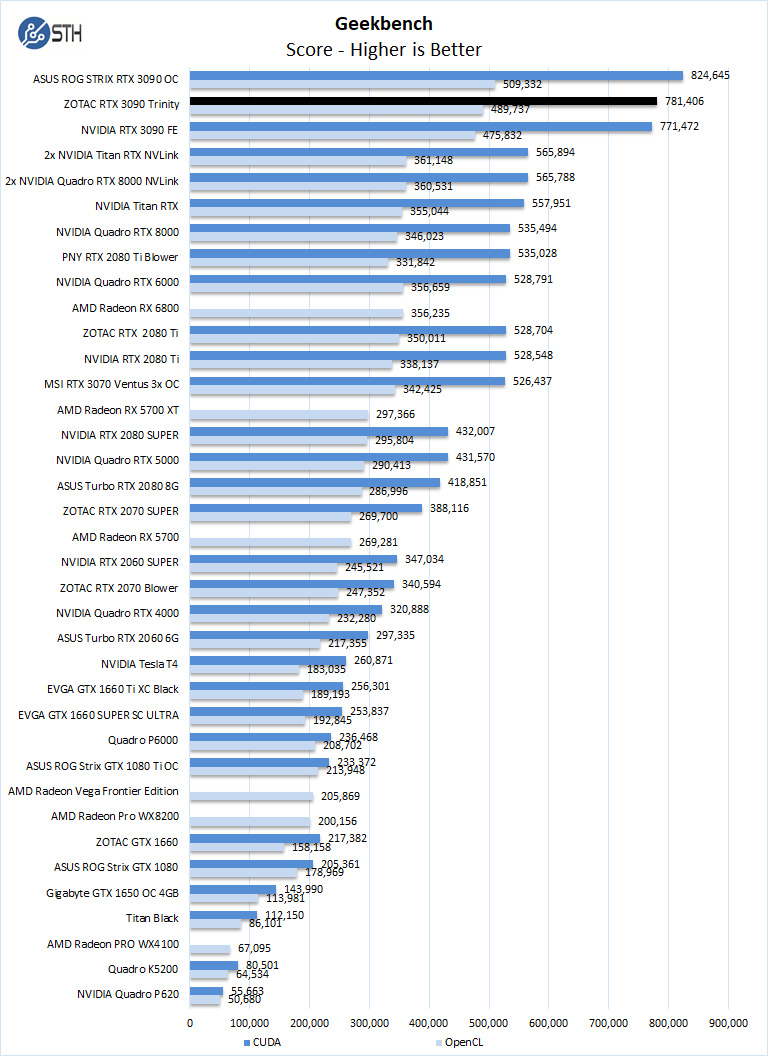
Our first compute benchmark, and we see the ZOTAC RTX 3090 Trinity, we can see the OpenCL, and CUDA performance compares to the other RTX 3090 GPU’s with the ASUS ROG Strix RTX 3090 OC taking the lead as it is overclocked.
LuxMark
LuxMark is an OpenCL benchmark tool based on LuxRender.
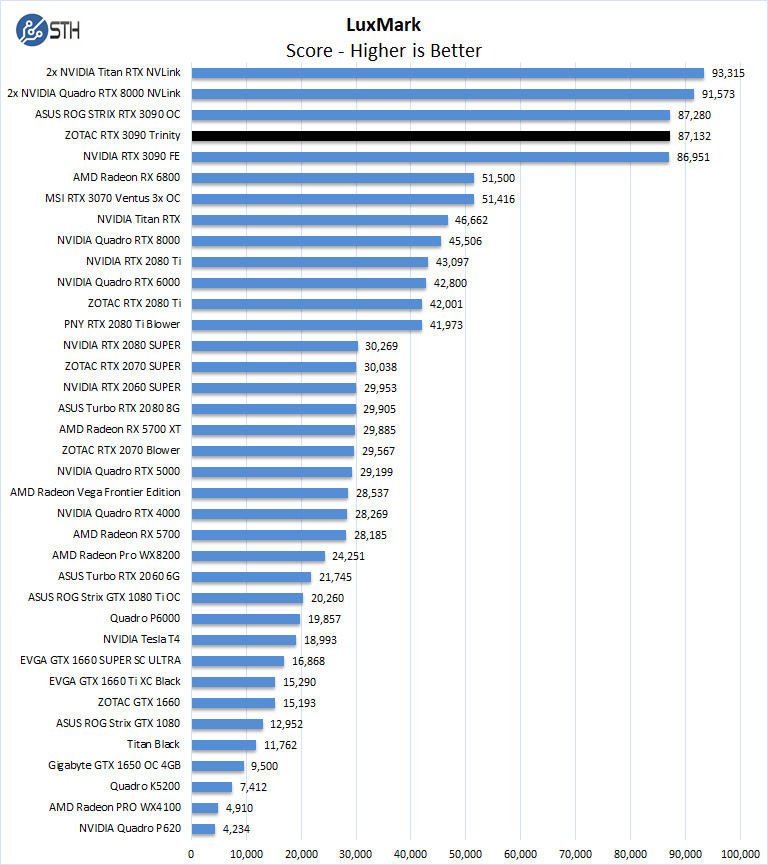
In LuxMark, a single ZOTAC RTX 3090 Trinity can surpass our Titan RTX and Quadro RTX 8000. In LuxMark, ZOTAC RTX 3090 Trinity shows outstanding performance and falls in line with the other RTX 3090’s we have reviewed.
AIDA64 GPGPU
These benchmarks are designed to measure GPGPU computing performance via different OpenCL workloads.
- Single-Precision FLOPS: Measures the classic MAD (Multiply-Addition) performance of the GPU, otherwise known as FLOPS (Floating-Point Operations Per Second), with single-precision (32-bit, “float”) floating-point data.
- Double-Precision FLOPS: Measures the classic MAD (Multiply-Addition) performance of the GPU, otherwise known as FLOPS (Floating-Point Operations Per Second), with double-precision (64-bit, “double”) floating-point data.
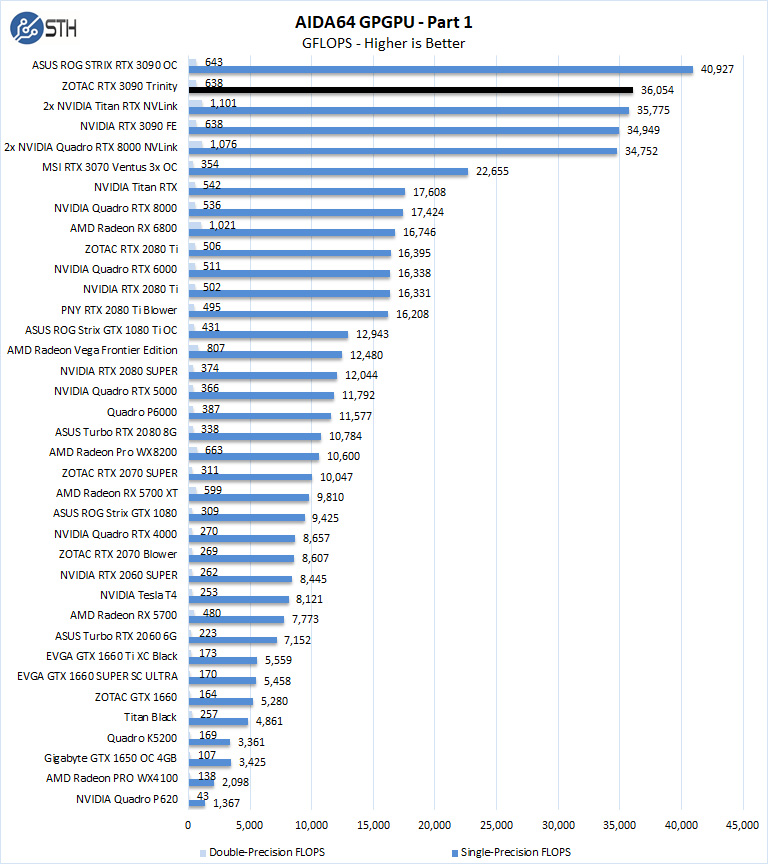
The next set of benchmarks from AIDA64 are:
- 24-bit Integer IOPS: Measures the classic MAD (Multiply-Addition) performance of the GPU, otherwise known as IOPS (Integer Operations Per Second), with 24-bit integer (“int24”) data. This particular data type defined in OpenCL on the basis that many GPUs are capable of executing int24 operations via their floating-point units.
- 32-bit Integer IOPS: Measures the classic MAD (Multiply-Addition) performance of the GPU, otherwise known as IOPS (Integer Operations Per Second), with 32-bit integer (“int”) data.
- 64-bit Integer IOPS: Measures the classic MAD (Multiply-Addition) performance of the GPU, otherwise known as IOPS (Integer Operations Per Second), with 64-bit integer (“long”) data. Most GPUs do not have dedicated execution resources for 64-bit integer operations, so instead, they emulate the 64-bit integer operations via existing 32-bit integer execution units.
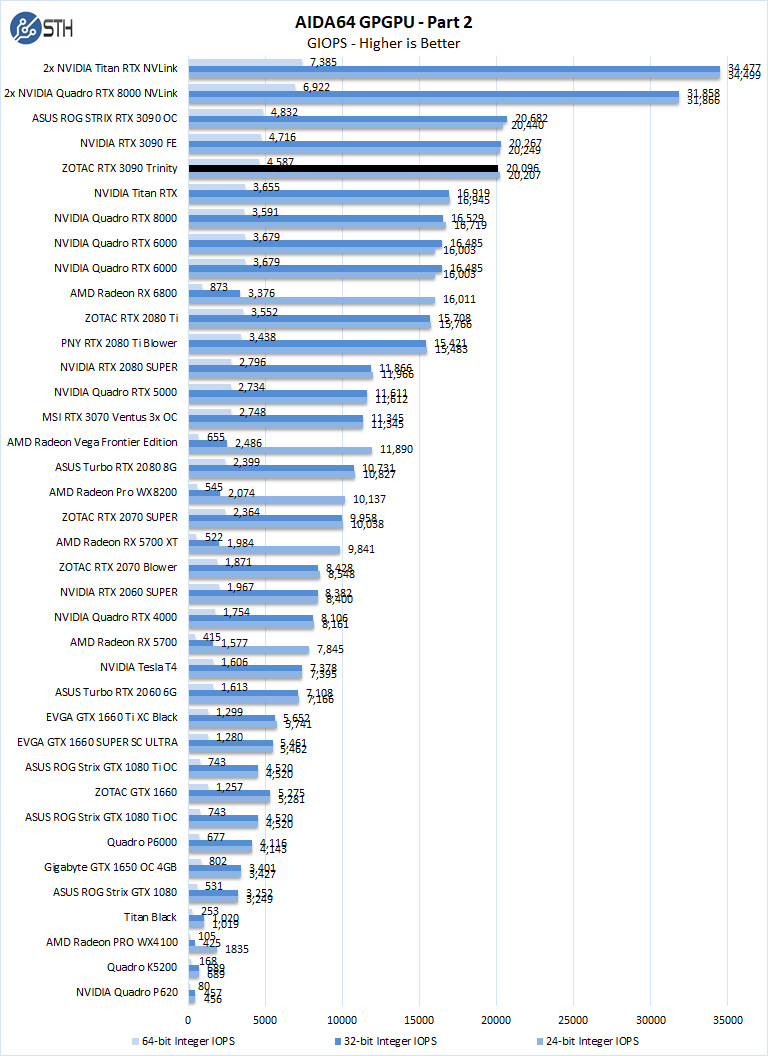
The takeaway here is the ZOTAC RTX 3090 Trinity falls into the cluster of RTX 3090 scores.
hashcat64
hashcat64 is a password cracking benchmarks that can run an impressive number of different algorithms. We used the windows version and a simple command of hashcat64 -b. Out of these results, we used five results in the graph. Users who are interested in hashcat can find the download here.
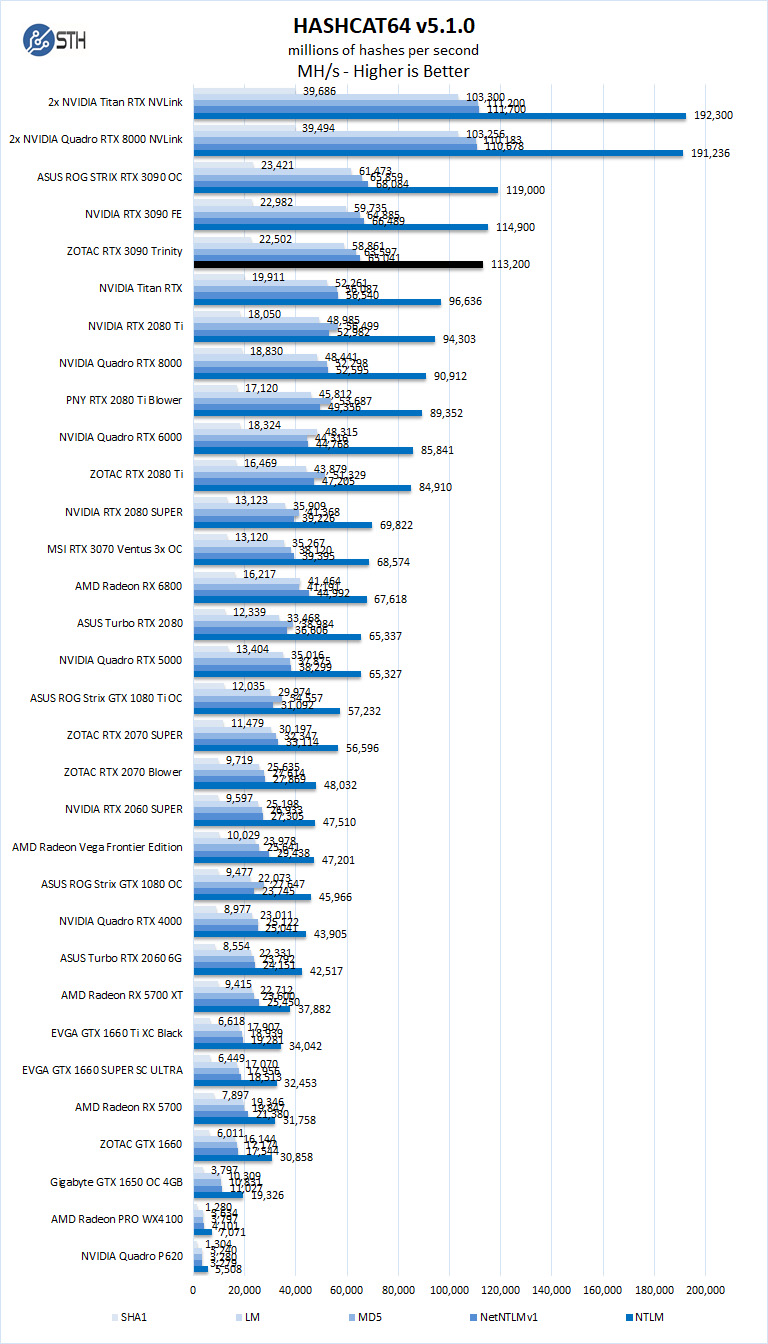
Hashcat can put a heavy load on GPUs and cooling. Here we see results at the bottom of our GeForce RTX 3090 results.
Next, we will look at SPECviewperf 13 performance tests.




Really bugs me that these things are getting wider, wider, and wider. As if taking up two slots wasn’t bad enough–now it won’t even fit into two? I mean seriously, who’s got THREE slots to spare in a case these days? And “2.5” isn’t any better than “3” as it’s still going to block two otherwise usable slots.
William, what dataset do you use for the Caffe tests, and what are the image dimensions? Thanks!
Estás placas vêem com defeito de fábrica. Não duram um ano. São poços resistente, a umidade e não o desempenho tão bom assim.